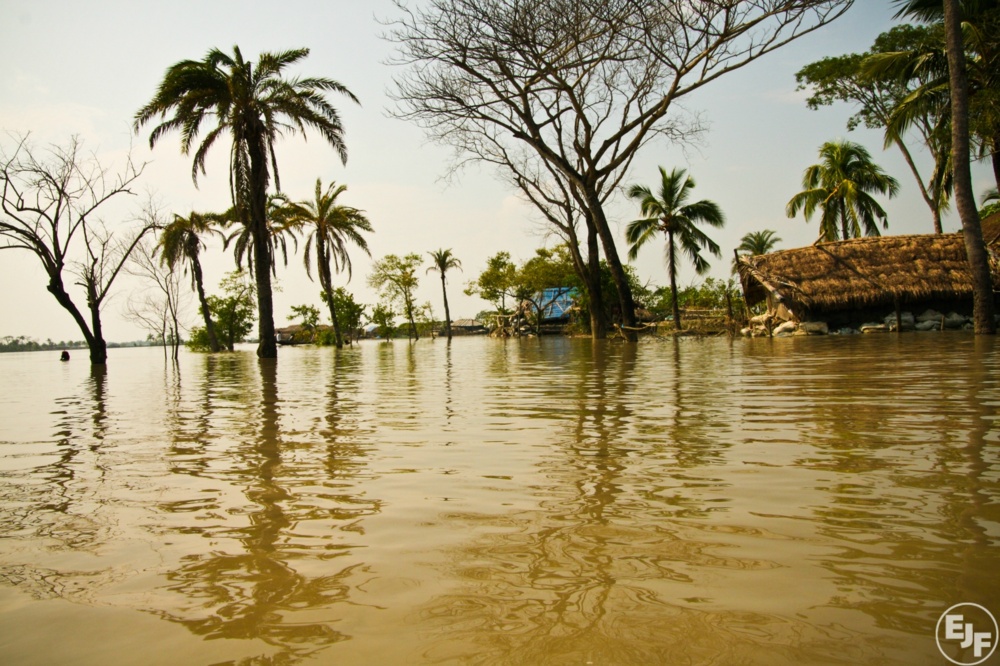
Risking Lives and Livelihoods - The Climate Change Deniers
Today the Intergovernmental Panel on Climate Change (IPCC) has released the first part of their Fifth Assessment Report looking at the scientific basis of climate change and the summary is a worrying read. If you dig beneath the jargon it is clear: human-induced climate change is happening and it is happening now.
Commentators anticipated that the report would be geared towards tackling the apparent ‘slow-down’ in climate change since 1998. The IPCC simply reaffirms what we already know: because of natural variability, short-term records are overly sensitive, unreliable and don’t reflect long-term trends. But more importantly it leaves no doubt that these long-term trends are unequivocally clear.
Since records began, human activity has increased the surface temperature of the planet by almost 1°C. Each decade is warmer than any other decade since 1850. In fact scientists are confident that the Earth has not witnessed decades as warm as the last two for at least 1400 years. Concentrations of carbon dioxide, methane and nitrous oxide (all major greenhouse gases) have not been as high as they are now for over 22,000 years.
Alarming observations of accelerating Arctic ice loss – last year summer ice extent in the Arctic was the lowest since records began – are similarly confirmed. Over the last decade, the rate of ice loss has increased by more than 600% on the previous decade’s levels. Very substantial warming, as much as 3°C degrees in some areas, is melting the Arctic permafrost currently locking in huge deposits of methane – a study out this month put the economic cost of that methane entering the atmosphere at US$68 trillion.
The report confirms that, over the next century, more ice will melt, the oceans will warm, rise and become more acidic and rainfall will become more unpredictable. It features an upwards revision of global average surface temperature rises to at least 2°C by 2100 but quite probably more. A scientific report from the World Bank at the end of last year anticipates a disastrous 4°C rise that will decimate economically and ecologically vulnerable regions of the world.
The IPCC report isn’t saying anything new. It is simply reiterating, yet again, that there is no significant degree of uncertainty regarding the human origins of climate change. The level of certainty they use in the report (95-99%) is equivalent to how certain scientists are about the age of the universe or that smoking causes cancer. They are more certain that climate change is happening, is caused by humans and will persist for centuries than they are about the health benefits of vitamins.
When talking about future and past processes on a global scale, scientists use language that might mislead the layperson: the outcomes of thousands of independent scientific studies become condensed into single sentences which include phrases to indicate confidence and likelihood. An obsession with these phrases, has seen scientific ‘uncertainty’ become the focus of most public debate – 80% of media stories hone in on ‘unknowns’ according to a recent study. But scientists have, will and should always use this type of language; it’s part of what makes rigorous science.
At the press release in Stockholm this morning, the co-chair of the report, Dr. Thomas Stocker, emphasised that the IPCC report is not about headlines but scientific assessment. He reiterated that the evidence on anthropogenic climate change is clear and adopted by 110 world governments by consensus. If one new thing is to come out of the IPCC’s latest report, it should be a fundamental shift in the climate change debate where the public, politicians and industry leaders finally accept the scientific certainty about anthropogenic climate change and move on to addressing the real and even more pressing issue: how the world responds to protect the most vulnerable.
We need to recognise this scientific consensus about climate change and take action. Climate change deniers risk the lives and livelihoods of millions; they undermine the environmental security of our planet and the balance that maintains the wealth of our natural world. All too often they are the fog horn of short term commercial interests. They are acting irrationally and irresponsibly. They might just as well be shouting down Galileo, or claiming our world is flat – ignore them and listen to the real science.
SIGN UP FOR OUR EMAILS AND STAY UP TO DATE WITH EJF